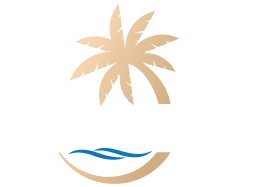Alcohol detox is a crucial step in the recovery process for individuals struggling with alcohol addiction. It involves the removal of alcohol from the body, typically under medical supervision, to manage withdrawal symptoms and ensure safety. The withdrawal process can vary in duration and intensity depending on the individual’s level of alcohol dependence.
It is crucial to seek professional help during alcohol detox to mitigate potential health risks and increase the chances of successful recovery.
Keep reading to know what alcohol detox is like.

So, what is alcohol detox like you ask?
- The intricate journey of alcohol detox, highlighting its phases, symptoms, and impact.
- Understand the gradual progression and potential challenges encountered during the detoxification process.
- Gain insights into the comprehensive support systems, including inpatient services, that facilitate a smoother detox journey.
Embarking on the path of alcohol detox is a pivotal step for individuals striving to overcome alcohol dependency. This journey, though challenging, paves the way for healing and recovery. Alcohol detox is the body’s process of eliminating all traces of alcohol, and it marks the beginning of re-adjusting to a life without alcohol. The journey is deeply personal and varies in intensity and duration based on individual circumstances, such as the duration of alcohol abuse and overall health.

What Is Alcohol Detox Like?
Alcohol detox is a highly individualized experience, reflecting the unique health profile and history of alcohol use of each person. Typically, the process begins mere hours after the last drink and can span several days or even weeks. It’s characterized by a spectrum of symptoms, both physical and psychological, that signal the body’s attempt to readjust to the absence of alcohol.
What Is Alcohol Withdrawal Syndrome?
Alcohol withdrawal syndrome is the body’s reaction to the sudden reduction or cessation of alcohol intake after prolonged abuse. The syndrome manifests a range of symptoms that can vary from mild anxiety and restlessness to severe, life-threatening conditions. These symptoms are the body’s response to the sudden absence of alcohol, which it had become reliant on over time.
What Does Alcohol Withdrawal Look Like?
The signs of alcohol withdrawal can vary significantly, painting a complex picture of detoxification. Early symptoms might include mild tremors, anxiety, nausea, sweating, and insomnia. As withdrawal progresses, symptoms can escalate in severity, leading to increased heart rate, high blood pressure, fever, and confusion. In severe cases, withdrawal can lead to hallucinations, seizures, and delirium tremens, a condition that requires immediate medical attention.
Alcohol Detox Symptoms Timeline
The detox journey unfolds in stages, each marked by a distinct set of symptoms:
- Stage 1 (6-12 hours): Initial symptoms may include headaches, anxiety, nausea, and heart palpitations. These are early signs that the body is starting to cope with the absence of alcohol.
- Stage 2 (12-48 hours): Symptoms may intensify to include high blood pressure, increased body temperature, rapid heartbeat, and confusion. This stage reflects the body’s increased struggle to function without alcohol.
- Stage 3 (48-72 hours): This stage is often considered the peak of withdrawal, with the possibility of experiencing severe symptoms such as hallucinations, fever, seizures, and delirium tremens.
Alcohol Detox Side Effects
The journey through detox is not without its challenges. Side effects can range from discomforting to severe, impacting both physical and mental well-being. Individuals may experience mood fluctuations, fatigue, changes in appetite, and sleep disturbances. In some cases, medical intervention may be necessary to navigate these side effects and prevent complications safely.
Alcohol Detox Help
The complexities of alcohol detox underscore the importance of professional assistance. Detox facilities provide a controlled environment with medical supervision, ensuring safety and comfort during this vulnerable time. Additionally, support groups and counseling are invaluable resources, offering emotional support and guidance throughout the detox journey.
Alcohol Detox Inpatient
For individuals facing severe addiction or those at risk of complicated withdrawal symptoms, inpatient detox programs are a cornerstone of support. These programs offer around-the-clock medical care and monitoring, creating a safe space for individuals to detox. The structured environment, combined with professional support, significantly reduces the risk of severe withdrawal complications and fosters a smoother transition toward recovery.
Alcohol Detox Benefits
Choosing to undergo alcohol detox is a monumental step towards reclaiming control over one’s life. The benefits of detox are manifold, encompassing improved physical health, mental clarity, and enhanced personal relationships. It’s a journey that demands courage and resilience, but the rewards of a sober, healthier life are immeasurable.
In this transformative phase, it’s crucial to remember that support is available. Oasis Detox stands as a beacon of hope and healing, offering a nurturing environment where individuals can safely embark on their detox journey. Our team of dedicated professionals is committed to providing compassionate care and comprehensive support, ensuring a safe and effective detox process.
Take the courageous step towards a life free from alcohol with Oasis Detox. For more information on our services and how we can support you or your loved ones during alcohol detox, contact us here. Your journey to recovery begins here.




